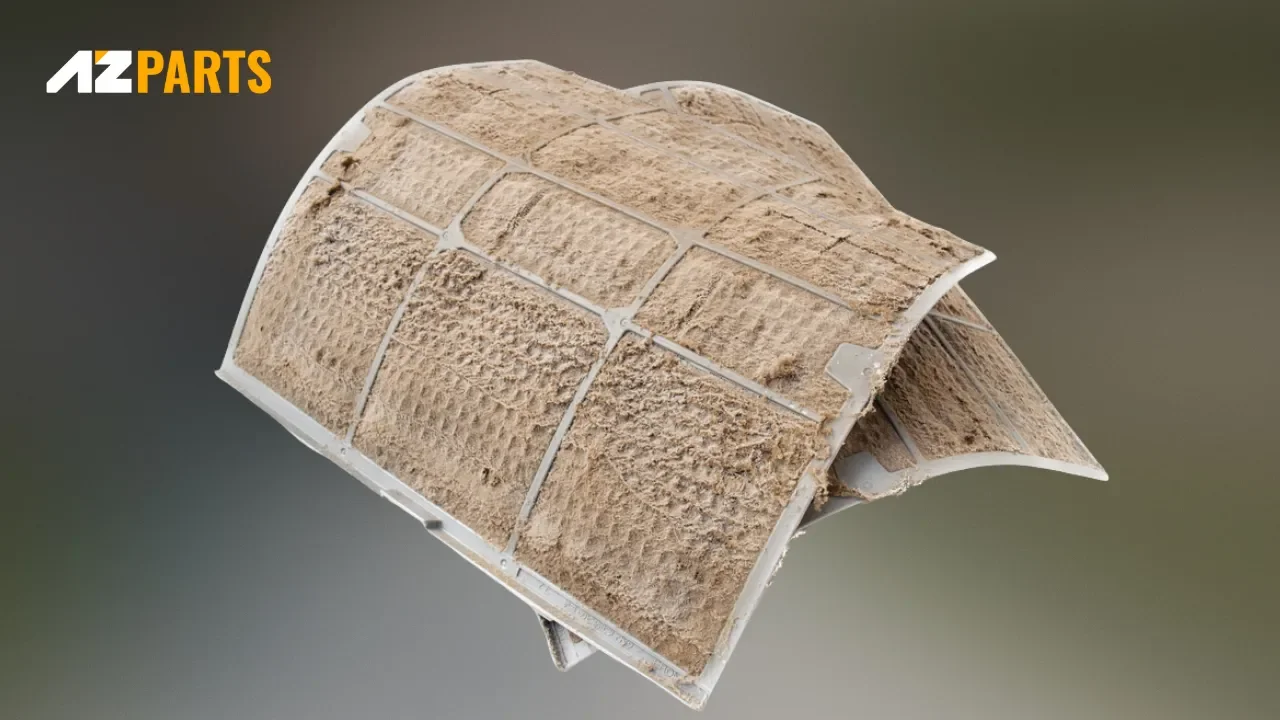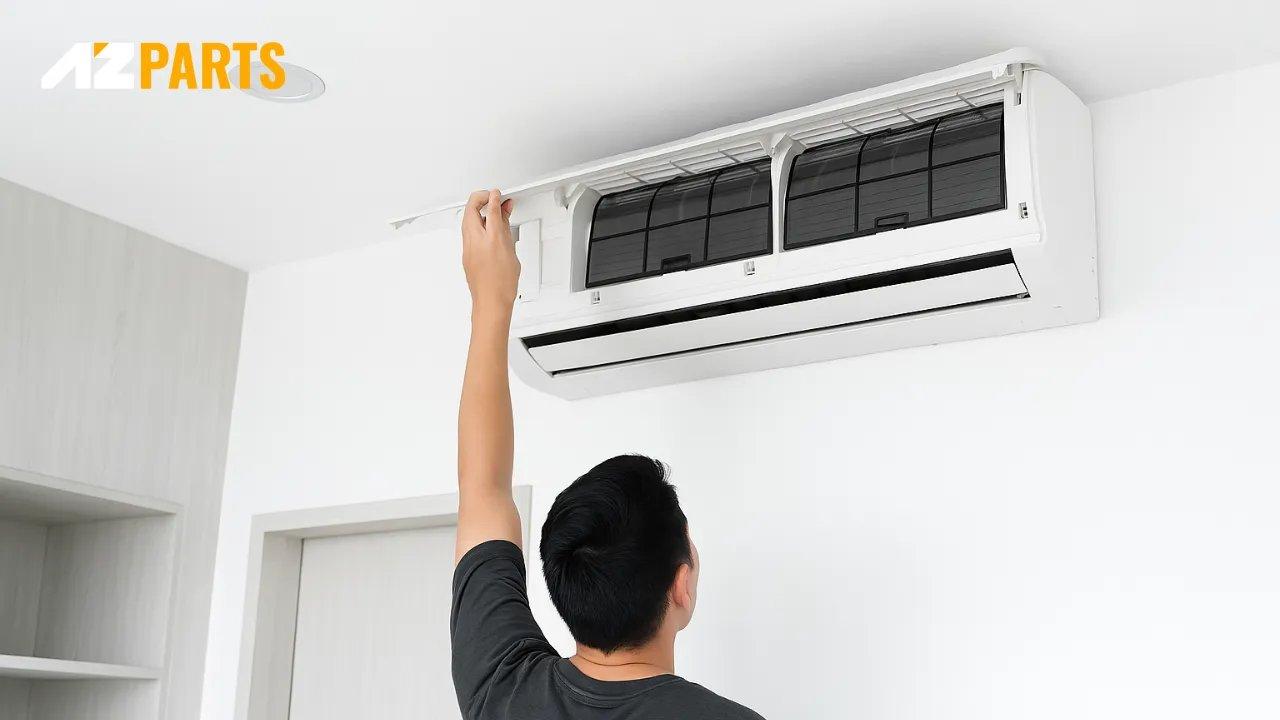Review
What Is AC Short Cycling? Causes & Solutions
AZparts Team
Updated on July 3, 2025
6 min read
AC short cycling is a common yet serious issue that can affect your air conditioner’s efficiency and longevity. It occurs when your AC unit turns on and off too frequently without completing a full cooling cycle. Join AZParts to learn what causes AC short cycling and how to fix it to prevent damage and restore normal function.
_1751529906.jpg&w=3840&q=75)
1. What Is Air Conditioner Short Cycling?
Short cycling happens when your air conditioner turns on and off too frequently without completing a full cooling cycle. Ideally, an air conditioner cooling cycle should run until your home reaches the temperature set on your thermostat. In a short-cycling scenario, the system shuts off prematurely, only to start again soon after.
This constant stop-and-start wears out your system faster, reduces cooling efficiency, and can lead to higher energy bills. Over time, short-cycling can even result in expensive repairs or the need for a complete AC replacement.
_1751527985.webp)
Short cycling occurs when a HVAC system turns on and off more frequently than it should (Source: AZParts)
2. Why Is My HVAC System Short Cycling?
Your HVAC system may be short cycling due to a variety of underlying problems that disrupt its normal operation. One of the most common causes is an oversized HVAC unit. If the system is too powerful for your space, it will cool the area too quickly and shut off before completing a full cycle. This leads to repeated restarts that strain the components.
Another common reason is a dirty or clogged air filter. When airflow is restricted, the system may overheat or become unbalanced, triggering it to shut down prematurely. Replacing or cleaning the filter regularly can help prevent this issue.
_1751528017.webp)
One of the most common causes is a dirty or clogged air filter (Source: AZParts)
Low refrigerant levels can also cause short cycling. If there is a leak or the refrigerant is undercharged, the system cannot maintain the correct pressure, which can cause the compressor to turn on and off more frequently than it should.
A malfunctioning thermostat may also contribute to short cycling. If the thermostat is placed near a vent or a heat source, it may send incorrect signals to the HVAC system, causing it to shut off too soon.
Additionally, electrical issues or a failing compressor can disrupt the communication between system components, leading to short bursts of operation. If the short cycling continues after basic maintenance, you should contact a professional HVAC technician to inspect and repair the system before more serious damage occurs.
3. How to Fix Air Conditioner Short Cycling?
Short cycling can lead to poor cooling, higher energy bills, and long-term damage to your air conditioning system. Below are common causes and how you can fix each issue effectively:
3.1. Dirty Air Filter
A clogged air filter restricts airflow and can cause the evaporator coils to freeze. This disrupts the cooling cycle and forces the system to shut down prematurely. You should replace or clean the air filter every one to three months, depending on how often you use your air conditioner and the type of filter installed.

You should replace or clean the air filter every one to three months (Source: AZParts)
3.2. Oversized Air Conditioner
If your air conditioner is too large for the room or house, it may cool the space too quickly and shut off before completing a full cycle. This leads to inconsistent temperatures and frequent restarts. You should consult an HVAC professional to evaluate your system and determine whether a right-sized unit is needed.
_1751528209.webp)
If your air conditioner is too large, you should consult an HVAC professional to determine if a more appropriately sized unit is needed (Source: AZParts)
3.3. Leaking Refrigerant
Low refrigerant levels reduce cooling performance and may cause the coils to freeze. This results in short cycling as the system struggles to maintain temperature. A licensed technician should inspect your system, repair any leaks, and recharge the refrigerant to restore proper function.
_1751528224.webp)
If you find the refrigerant level is low, call a technician to inspect the system, repair any leaks, and recharge the refrigerant (Source: AZParts)
3.4. Thermostat Malfunctions
A faulty or incorrectly positioned thermostat can send inaccurate readings, causing the AC to turn on and off unnecessarily. Make sure your thermostat is located away from heat sources like sunlight or vents. If the thermostat is defective, you should replace it to ensure accurate temperature control.
_1751528241.webp)
Let’s make sure your thermostat is located away from heat sources like sunlight or vents (Source: AZParts)
3.5. Blocked or Dirty Evaporator Coils
When dirt or dust covers the evaporator coils, the system cannot absorb heat efficiently. This can lead to freezing and short cycling. Cleaning the coils or having a technician inspect them will restore normal operation and improve cooling performance.
_1751528258.webp)
Regular cleaning of the coil will restore normal operation and improve cooling performance (Source: AZParts)
3.6. Electrical Issues
Faulty capacitors, wiring problems, or control board malfunctions can interrupt the system’s ability to complete full cooling cycles. If you suspect an electrical fault, check the capacitor. You can find a range of high-quality AC capacitors at AZParts that are compatible with most air conditioning systems. Replacing a worn or failing capacitor can restore consistent operation.
3.7. Improper Ventilation or Blocked Vents
Blocked vents or poor airflow throughout your home can prevent the AC from distributing cool air effectively. This causes the system to turn off too soon. You should inspect all vents to ensure they are open and unobstructed. Improving insulation and sealing leaks in your home can also help maintain consistent cooling.
_11zon%20(1)_1751529798.webp)
You should inspect all vents to ensure they are open and unobstructed (Source: AZParts)
4. How to Prevent AC Short Cycling from Occurring in My System?
Preventing air conditioner short cycling starts with regular maintenance and responsible system care. You should schedule routine HVAC service visits at least once or twice a year to ensure all components are working correctly. During these service calls, technicians will inspect and clean essential parts such as air filters, evaporator coils, and blower motors. Keeping these parts clean helps the system maintain proper airflow and prevents unnecessary strain on the unit.
You should also have the technician check the refrigerant levels to confirm they are within the correct range. Low refrigerant can cause the system to malfunction and trigger short cycling. Additionally, technicians will examine the electrical connections to make sure there are no loose wires or signs of wear that could disrupt communication between components.
Maintaining your thermostat is equally important. You should place the thermostat in a neutral location, away from heat sources like windows, appliances, or air vents. This helps it read room temperature accurately and prevents false signals that can lead to short cycling.
By taking these proactive steps and addressing minor issues early, you can extend the lifespan of your AC system, avoid costly repairs, and ensure consistent and efficient cooling throughout your home.
_1751529822.webp)
You should schedule routine HVAC service visits to ensure they working correctly (Source: AZParts)
Dealing with AC short cycling promptly can help you avoid expensive repairs, extend the lifespan of your system, and improve energy efficiency. Whether the issue is with your thermostat, compressor, or refrigerant levels, identifying the root cause is essential. If you need replacement AC parts for your HVAC system, explore AZParts for trusted, high-quality solutions that help restore comfort to your home.
Contact Information:
8 The Green, Ste A, Dover, Delaware 19901-3618, United States
Air conditioner
Further Reading
Further Reading





